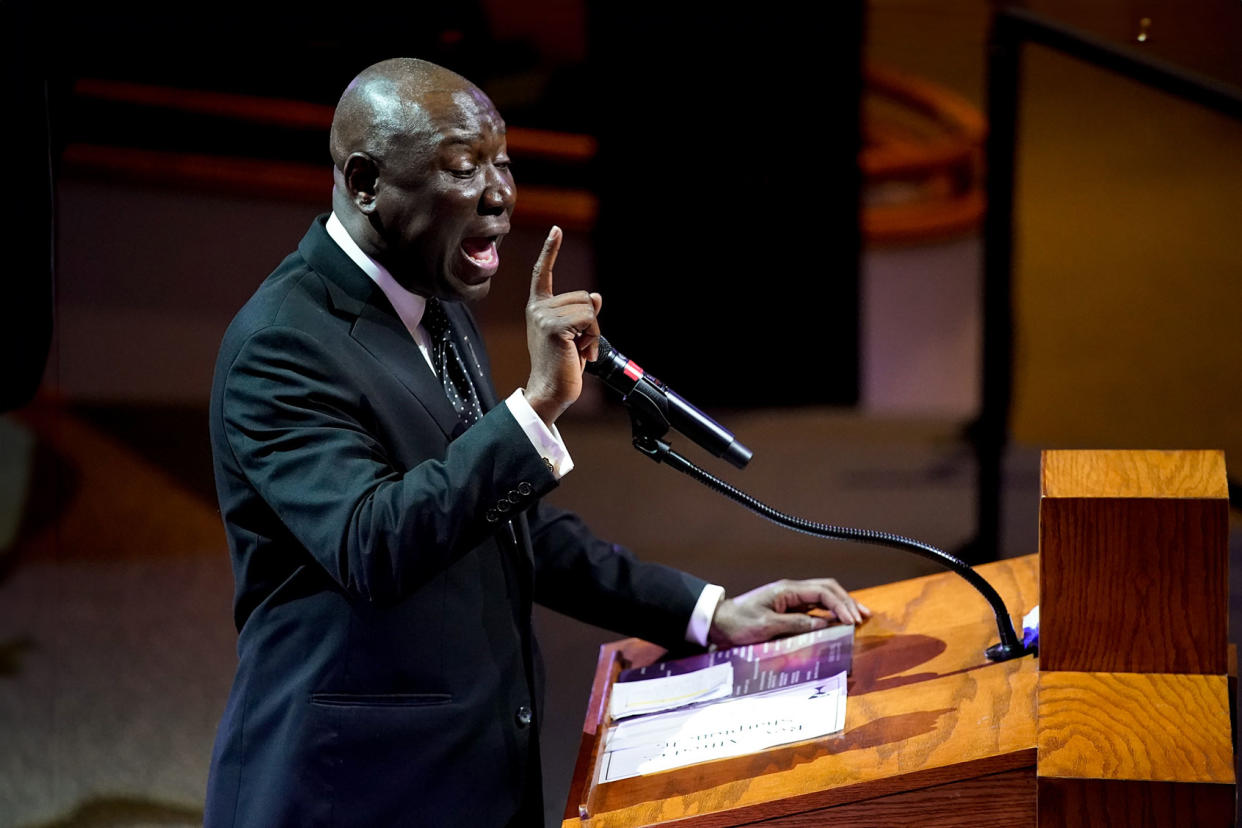Police footage shows that an Illinois cop shot and killed Sonya Massey inside her own home

Body-camera footage released this week shows a sudden escalation by police that resulted in Deputy Sean Grayson shooting a 36-year-old Black woman dead in her home on July 6 — an act for which the officer is now facing murder charges.
In the footage, Grayson and another deputy speak calmly with the woman, Sonya Massey, in her living room, asking her for paperwork and ID, though Massey sometimes appears confused by their questions and unsure of where to find her documents. The two Sangamon County sheriff's deputies were responding to a 911 call by Massey, who had reported a "prowler" at her home in Springfield, Illinois, according to a court document.
After several minutes, one of the officers points to a pot of steaming water on a stove, telling Massey that "we don't need a fire while we're here." As Massey goes to retrieve the pot, the three continue to talk casually, with the other deputy stepping back away "from your hot steaming water."
"I rebuke you in the name of Jesus," she responds, possibly in jest. "Huh?" the deputy says, before Massey repeats herself, holding the pot and standing in front of the stove.
“You better f**king not or I swear to God I’ll f**king shoot you in the f**king face,” Grayson says, his tone suddenly threatening. He then draws his gun on Massey, who ducks and says, "Okay, I'm sorry," while still holding the pot. "Drop the f**king pot," both deputies shout, as three shots are fired. After a few seconds, one deputy reports a headshot wound and calls emergency medical services. "F*ck," he says.
When his partner says he's going to retrieve a medical kit, Grayson tells him that it's no use. "Nah, she's done," he says. "You can go get it but that’s a headshot."
Grayson appears to believe that he had just shot down an imminent threat. “God d*mn it. Dude, I’m not taking f**king boiling water to the f**king head. And look, it came right to our feet, too,” he says, even though the footage shows that Massey did not throw any water. Grayson later repeats the claim to another law enforcement officer, telling him that Massey "had boiling water and came at me with boiling water ... she said she was going to rebuke me in the name of Jesus and came at [me] with boiling water," calling her a crazy "f**cking b*tch."
In a news conference on Monday, civil rights attorney Ben Crump, who is representing Massey's family, told reporters that she had mental health challenges but did not show any real aggression.
"She needed a helping hand,” he said. “She didn’t need a bullet to the face."
Grayson, who has been fired, was indicted by a grand jury last week on three counts of first-degree murder and one count each of aggravated battery with a firearm and official misconduct. He has pleaded not guilty and was denied pretrial release.
An Illinois State Police investigation into the shooting “does not support a finding that … Grayson was justified in his use of deadly force," according to a report. Massey's death follows several cases of Black women being killed by police in their own home, including Breonna Taylor and Atatiana Jefferson. In both cases, the perpetrating officers were accused of using excessive and unnecessary force.
According to a Washington Post database of deadly police shootings, Black women are far more likely to be killed by police than other women.
“Until we get justice for Sonya Massey, we rebuke this discriminatory criminal justice system in the name of Jesus,” Crump said.
Massey's father, James Wilburn, said at the news conference that he thought Massey was killed by an intruder until his brother found the truth on the internet. Later, Wilburn told CNN that Massey's death underscored the need for Black parents to warn their children about the potentially fatal dangers of dealing with police in America.
“You’re used to having ‘the talk’ with boys, but now I guess we have to talk to our girls about … their interactions with the police,” Wilburn said.

